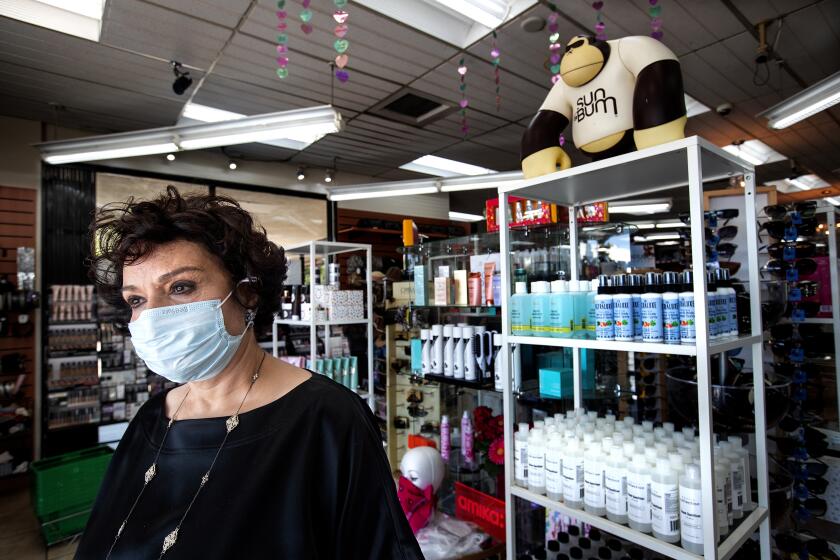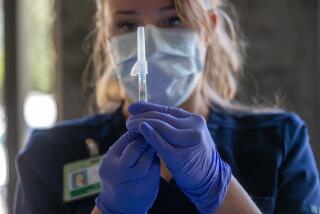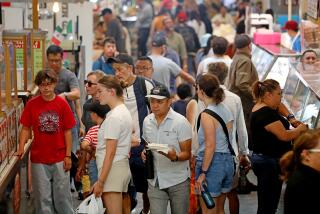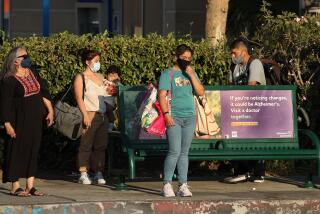California could reopen gyms, bars and professional sports soon but warns ‘guidance doesn’t mean go’
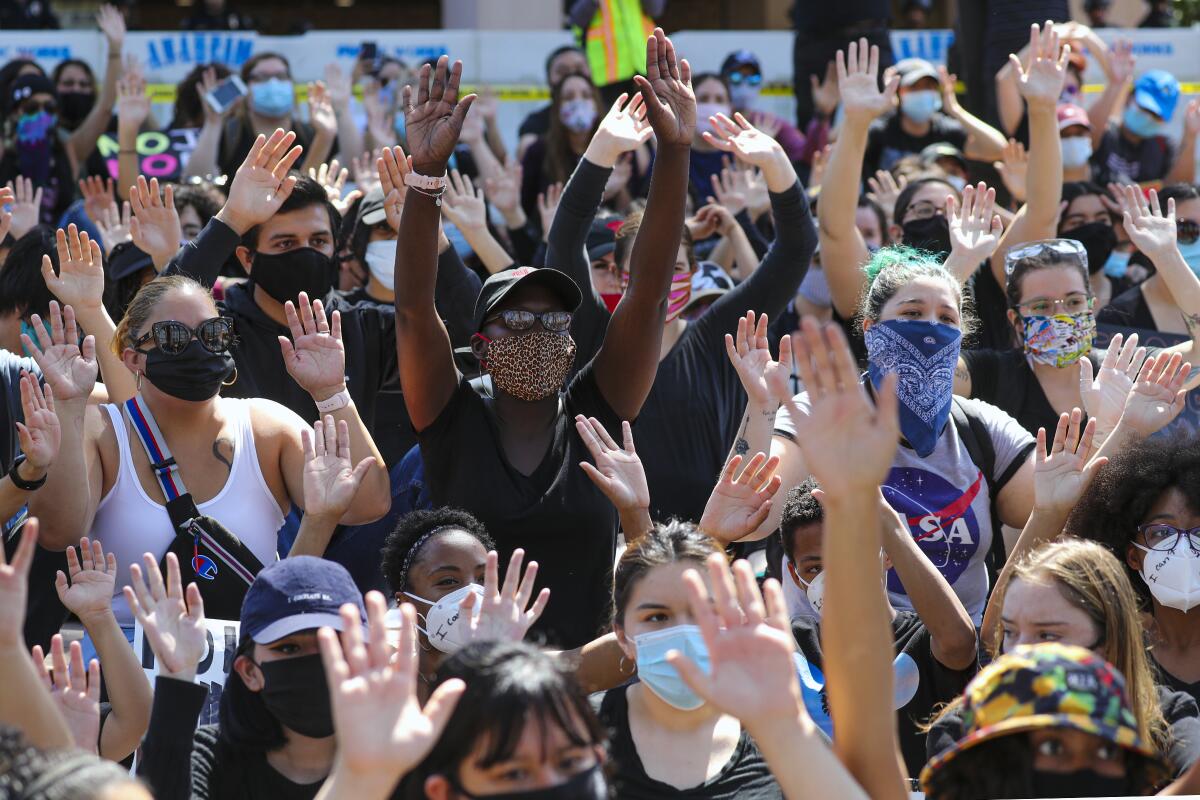
California officials said Friday that counties could begin reopening gyms, day camps, bars and some professional sports by as early as next Friday, but specifics remain unclear.
The state said it would release more detailed guidelines later. Officials stressed that such reopenings would be based on local conditions. Rural counties where COVID-19 has been less of a problem will likely be able to reopen much quicker.
“By far and away the most important thing is for county and local officials to use the state’s guidance and consider it in light of their own data, and their own trends,” said Dr. Mark Ghaly, secretary of California Health and Human Services.
The state thinks that “if counties do this under the strong guidance of their public health officers — and with the consideration for the local conditions — that they can do this in a lower risk and safer manner,” he said.
Any reopening will come with strict safety rules and social distancing mandates.
The announcement marks the latest effort to rapidly reopen the economy after months of closures because of the pandemic. California continues to see new cases and deaths, and there has been debate about whether the state is reopening too quickly.
“Just because some businesses are opening doesn’t mean your risk for COVID-19 is gone. We all need to continue to keep physical distancing, wash our hands and wear face coverings in public,” said Dr. Sonia Angell, the state’s public health officer and director of the California Department of Public Health.
“As we continue to release guidance on how different sections can reopen with modifications, it is important to remember guidance doesn’t mean ‘go,‘” Angell said. “Your local health officer will make the final decision about which sectors will open guided by data specific to your community.”
With coronavirus restrictions beings eased, combined with a week of protests and rallies across the state against police brutality and racial inequality, state health officials expect to see the number of COVID-19 cases in California to increase.
“Certainly, we’re prepared,” Ghaly said. “We’re going see an increase in cases and with that the risk of people becoming sick and dying.”
L.A. is prosecuting more than 70 businesses so far for allegedly flouting COVID-19 rules. The group includes pet groomers, salons and smoke shops.
Ghaly said that’s why it’s so critical for county public health officials to assess the scope of the COVID-19 pandemic in their areas, and their ability to respond adequately, before implementing any of the new guidelines released by the state. If counties do that, they should be prepared to care for an uptick in coronavirus cases, he said.
Some counties continue to struggle with the virus.
As the number of confirmed coronavirus cases in Orange County topped 7,000 this week, officials said they were worried about the spread of the virus at the large anti-racism protests.
“Is it a concern? Absolutely. Do we respect their right to protest? Certainly,” Orange County Executive Officer Frank Kim said at a media briefing Thursday. “We would hope that they would do so and use as much caution and safety protocols as reasonably possible.”
Orange County on Friday reported 296 new COVID-19 cases, bringing the total to 7,064. The county also reported nine additional deaths, bringing the total to 174.
Health officials said an estimated 3,021 residents have recovered from COVID-19. There were 283 people hospitalized as of Friday, including 123 in intensive care.
Orange County was quicker than other urban areas, including Los Angeles County, to begin reopening public life. Huge crowds that descended on Orange County beaches at the end of April prompted Gov. Gavin Newsom to temporarily close them — a move that irked local leaders, who responded by suing Newsom. County beaches have since reopened.
In recent days, there have been massive protests across Orange County, as in the rest of the country, over the death of George Floyd, a black man who died May 25 after a white Minneapolis police officer pressed his knee into Floyd’s neck for almost nine minutes.
“We’re always concerned when we see large gatherings, and I think it’s a real balance between preserving the rights of individuals to express their 1st Amendment rights as well as a desire and a request from the county that individuals do their best to maintain their six feet of social distancing,” Kim said.
Some of the Orange County cities now seeing protests against Floyd’s death are the same ones that saw raucous street demonstrations last month calling for the state to lift coronavirus restrictions.
The overwhelmingly white makeup of the crowds at the smaller reopening protests last month was not lost on people of color who have been marching the last several days. Some called it an overt display of privilege at a time when a disproportionate number of people who have been infected by and died of COVID-19 in California are black, Latino and poor.
More antiracism protests are planned in Orange County and elsewhere throughout the weekend.
Meanwhile, Orange County has been told by the state it will have to wait to reopen community swimming pools, said Lilly Simmering, assistant director of the county health agency.
A county order requiring face coverings in public, which officials said prompted a death threat against County Health Officer Dr. Nichole Quick last week, remains in place.
Simmering said that “should our numbers start to look better,” officials would discuss an end date or loosening of the current health order.
Simmering said officials “understand the frustration,” but added that masks are one of the few ways to slow the spread of the disease, for which there is no cure or vaccine. “Your concerns are the same as our concerns,” she said.
She also clarified details of the face covering and distancing rules. “My husband likes to go on long bike rides. He doesn’t have to wear a mask,” Simmering explained.
“You put on a face mask when you cannot maintain the six feet of social distancing. If you can maintain the six feet of social distancing, you have a choice.”
In Los Angeles County, where many COVID-19 testing sites had been shut down at some point amid the protests, all sites were reopened as of Friday, officials said. The closures and resulting drop in the number of people being tested could hurt the region’s response to the outbreak, health experts warned.
“We are committed to ensuring that testing is widely available to people who need them,” Dr. Christina Ghaly, director of the L.A. County Department of Health Services, said in a statement.
Christina Ghaly said it was “inspiring on many levels” to see the antiracism protests. She said the county did not issue a mandate to close COVID-19 testing facilities amid the demonstrations but allowed each site to make its own decision on whether to close or adjust hours.
Officials saw the volume of testing “decline slightly” over the last week because of both closures and “a higher-than-usual no-show rate at sites across the county,” she said.
Los Angeles County on Friday reported 1,445 new cases of COVID-19, bringing the total to 61,045. The county also announced 36 new deaths, bringing the total to 2,565.
Of those 36 deaths, 25 were older than 65, nine were between the ages of 41 and 65, and one was between the ages of 18 and 40, officials said. Twenty-nine had underlying health conditions.
Officials said that 94% of people who have died in L.A. County to date had underlying health conditions.
County health officials said they anticipate an increase in cases in the coming weeks because of the reopening of many businesses and other aspects of public life, as well as the protests. L.A. County Public Health Director Barbara Ferrer said a risk of exposure exists in any large gathering, “whether on the boardwalk in Venice or joining a protest against racism.”
Ferrer said that if a person is in a large crowd, in close contact for at least 15 minutes with people not wearing face coverings, he or she should consider self-quarantining for two weeks to see if symptoms develop.
She said that people should remember that the virus “has a long incubation period” and that “if you do get tested right away after exposure, you’re likely to test negative” because the viral load could still be low.
“Testing negative does not mean you cannot become infected later in the incubation period,” and it is still advised to stay away from others for 14 days, she said.
The Public Policy Institute of California on Wednesday released a new poll showing most Californians were wary of reopening too quickly amid the continuing pandemic.
The poll found widespread support for current statewide restrictions implemented to curb the spread of the virus. Some even want tougher safeguards, and many remain fearful about contracting COVID-19.
Of those polled, 36% said the virus was the most important issue facing the state today, compared with 23% who said they believed jobs and the economy were the top concerns.
More to Read
Sign up for Essential California
The most important California stories and recommendations in your inbox every morning.
You may occasionally receive promotional content from the Los Angeles Times.
